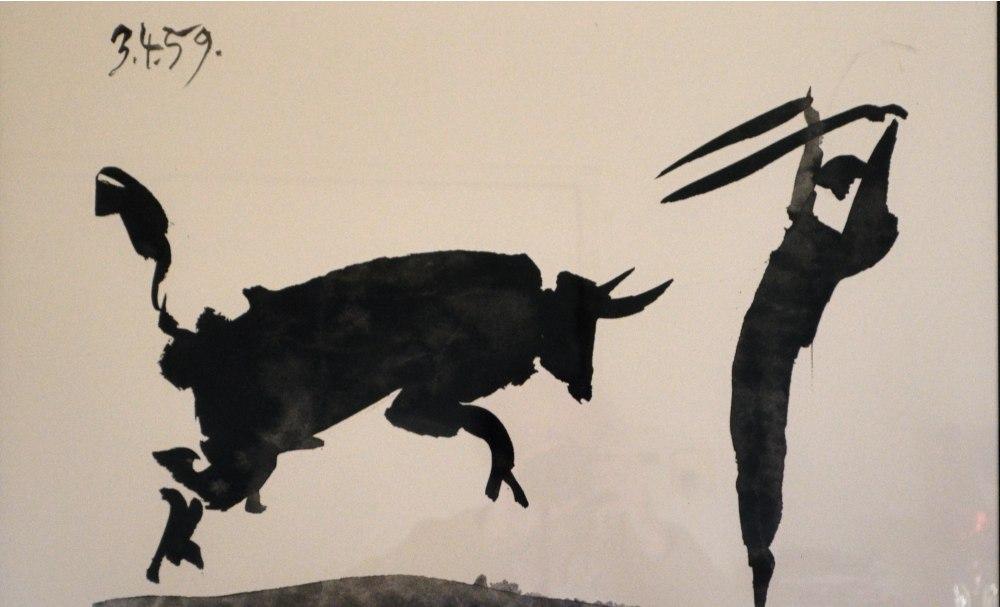
Picasso Bullfighting Scene 1959 Ink Paintings Picasso Museum in Paris
Picasso was A spaniard, and despite living in France for a long time, the imprint of Spanish culture on him has never been lost.
Spanish Bullfighting
Bullfighting, as the essence of Spain, has a history of centuries or even thousands of years. The scene of the matador and the bull fighting in the arena is extremely ornamental, which fascinates Picasso and becomes the subject of the artist's lifelong obsession.
Picasso even said that if he hadn't become a painter, he would have become a bullfighter, because he enjoyed the thrill of facing the bull, pulling out his sword, and hitting the heart of an angry bull with one sword.
When Picasso settled in the south of France, he often went with friends to the bullfighting arenas in Arles and Nîmes to watch bullfighting events. During this period, Picasso completed a series of paintings and ceramics of bullfighting scenes, demonstrating his unparalleled painting prowess.
Picasso's ink painting "Bullfighting Scene"
Completed in 1959, The Bullfighting Scene is an ink painting that is now in the collection of the Picasso Museum in Paris, France. Like a calligrapher, Picasso used a brush and a little Chinese ink to sketch the deadly struggle between an angry bull and a brave bullfighter in a uniquely minimalist way. A few strokes are enough to make the scene depicted in Picasso's work extremely bloody and dramatic.
The warrior in Picasso's painting is a shot-and-shooter. The throwing gun is a javelin that can be thrown to kill or injure enemies or beasts, it consists of two parts: a handle and a long spear gun, and the earliest prototype probably dates back to the Paleolithic age. The matador stabs them steadily from the bull's back to its heart.
Picasso's ink painting "Bullfighting Scene" is a part of 1959
The bullfighting scene was an important painting subject for Picasso's lifelong obsession, and Picasso admired the vitality contained in the angry bull. In this work, the muscular bull leaps up in the air, four feet off the ground, and it rushes towards the bullfighter with full force. Who wins in the end? Beast or Matador?
Picasso's ink painting "Bullfighting Scene" is a part of 1959
Let's take a look at Picasso's other ink and ceramic bullfighting works that he completed at the same time.
Painter Wang Yancheng at the Picasso Museum in Paris
The "Yan" says that Picasso series, through 25 representative works of Picasso's different periods of life, tells the story of Picasso's modern art road, please continue to pay attention.